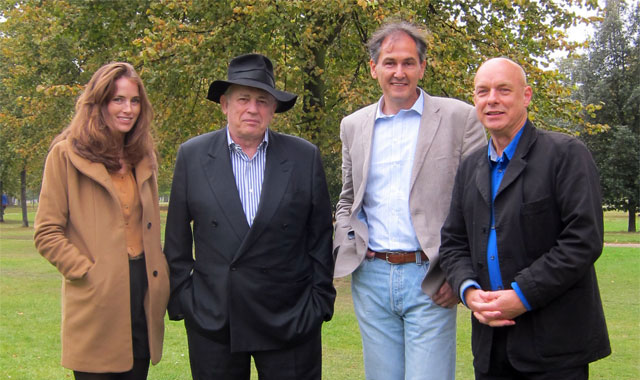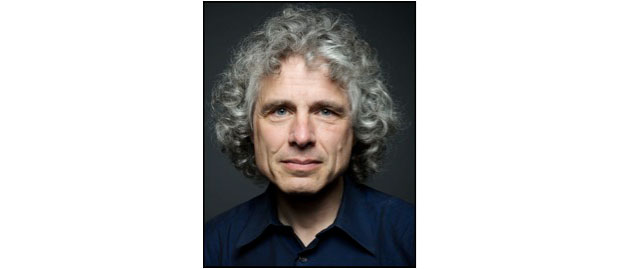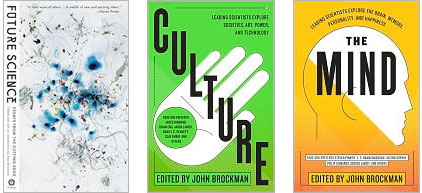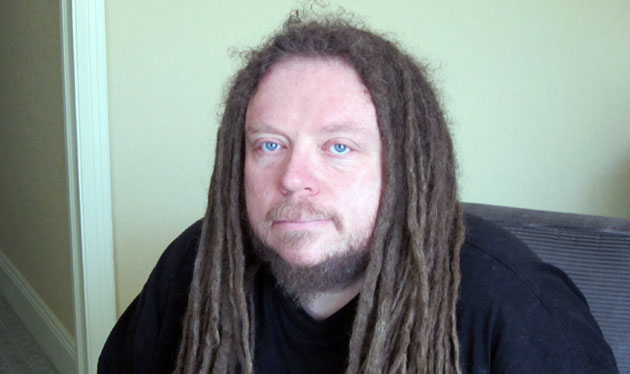Sing, O Muse, of my wanderings at Google, where I encountered strange ideas, heros and demigods, at Sci Foo 2011.
— Frank Wilczek, Recipient, Nobel Prize in Physics (2004)
The sixth annual Science Foo Camp (Sci Foo) was held August 12-14 at the Googleplex in Mountain View, California, organized and sponsored by the interesting consortium of Nature, Google, and O'Reilly Media. "Foo" Camp is an idea originated by Tim O'Reilly. It stands for "Friends of O'Reilly." At Sci Foo, about 200 leading scientists, technologists, writers, and other thought-leaders gather for a weekend of unbridled discussion, demonstration, and debate. For a sense of what goes on, check out previous Edge reports: Sci Foo—2007 by George Dyson, A Slice of Sci Foo—2008 by Frank Wilczek, Sci Foo 2009 and Sci Foo Photo Album—2009.
Sci Foo is different from all the other sci-tech-digerati conferences that have proliferated. In terms of signal to noise ratio for a conference, it's the cleanest signal you can find: everybody you meet, look at, talk to, listen to, is someone you want to know, someone you should know. It's unique in that regard, and it's the best couple of days of the year for most of the people that are fortunate enough to be invited to attend. There's a spirit, an energy, and ebulliance from all concerned about the scientific enterprise.
So who are these characters? I was able to corral a few dozen of them and ask them to ...
"Ask the question you are asking yourself. You have one minute."
Google's Open Sourcerer and Sci-Foo co-organizer, Chris Dibona and 30 other Sci-Foo attendees answer.
Martin Rees, President Emeritus, The Royal Society; Professor of Cosmology & Astrophysics; Master, Trinity College, University of Cambridge; Author, Our Final Century: The 50/50 Threat to Humanity's Survival ; Hans Ulrich Obrist, Curator, Serpentine Gallery, London; Editor: A Brief History of Curating; Formulas for Now; Vittorio Bo,Director, Festival Della Scienzia, Genova; Nicholas Pritzker, Chairman of the Board and CEO of the Hyatt Development Corporation; George Dyson, Science Historian; Author, Darwin Among the Machines; Project Orion;Larry Brilliant, President of the Skoll Urgent Threats Fund and Senior Adviser to Jeff Skoll; Jonathan Schooler, Professor of Psychology, University of California Santa Barbra; Juan Enriquez, CEO, Biotechonomy; was Founding Director, Harvard Business School's Life Sciences Project; Author,The Unti, States of America; Philip Campbell, Editor-in Chief, Nature; Stewart Brand, Founder, The Whole Earth Catalog; Cofounder, Chairman, The Long Now Foundation; Author, Whole Earth Discipline ; Frank Wilczek. Herman Feshbach Professor of Physics, MIT; Recipient, Nobel Prize in Physics, 2004; Author, The Lightness of Being;Cat Allman, Google’s open source Programs Office, Co-Organizer of SciFoo; Jennifer Jacquet, Postdoctoral Researcher, Fisheries Centre/Department of Mathematics, University of British Columbia;Mariette DiChristina, Editor in Chief, Scientific American; Chris Dibona, Open Source and Public Sector, Google; Alex O. Holcombe, Senior Lecturer, University of Sydney; Australian Research Council Future Fellow; Linda Stone, Hi-Tech Industry Consultant; Former Executive at Apple Computer and Microsoft Corporation ; Seth Shostak, Senior Astronomer, SETI Institute; Charles Seife, Professor of Journalism, New York University; formerly journalist, Science magazine; Author, Proofiness ; Michael Vassar,President, Singularity Institute; David Pizarro, Psychologist, Cornell University; Researcher in Moral Judgment;Debbie Cachra, Associate Professor of Materials Science, Franklin W Olin College of Engineering; Tim O'Reilly,Founder and CEO of O'Reilly Media, Inc.; Dan Ariely, Center for advanced hindsight, Duke University; James B. Duke Professor of Psychology and Behavioral Economics at Duke University; Author, The Upside of Irrationality; Saul Griffith, Chief Scientist, Other Lab; Manu Prakash, Assistant Professor, Bioengineering, Stanford ; Lisa Randall, Physicist, Harvard University; Author, Warped Passages; Alison Gopnik, Psychologist, UC, Berkeley; Author,The Philosophical Baby ; Eric Weinstein, Mathematician and Economist; Principal, Natron Group; Esther Dyson, Catalyst, Information Technology Startups, EDventure Holdings; Former Chariman,Electronic Frontier Foundation and ICANN; Author: Release 2.1; Max Tegmark, Physicist, MIT; Researcher, Precision Cosmology; Scientific Director, Foundational Questions Institute; Sean Carroll, Theoretical Physicist, Caltech; Author, From Eternity to Here: The Quest for the Ultimate Theory of Time; Jennifer Ouellette, Science Writer.
NYU researcher Jennifer Jacquet studies cooperation and the tragedy of the commons.












